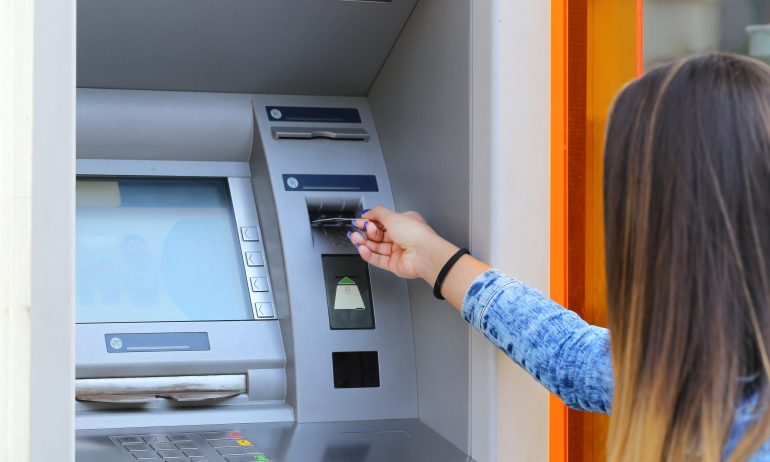Prepaid Debit Cards: What They Are and How They Work
Load money in advance onto a prepaid debit card, then use it to make purchases or get cash at ATMs. You can reload the card in multiple ways.

Many, or all, of the products featured on this page are from our advertising partners who compensate us when you take certain actions on our website or click to take an action on their website. However, this does not influence our evaluations. Our opinions are our own. Here is a list of our partners and here's how we make money.
Table of Contents
Nerdy takeaways about prepaid debit cards
Prepaid debit cards can be used to make payments and purchases.
Many prepaid debit cards don't require credit checks, so they're easy to get.
You can use prepaid debit cards as an alternative to a bank account and as a budgeting tool.
A prepaid debit card only lets you spend the money you’ve loaded onto the card.
Many prepaid debit cards don't require credit checks, so they're easy to get. If you're in one of the roughly 6 million U.S. households without access to a bank account, prepaid cards can be a solution to safely spending money without having to use a bank.
What is a prepaid debit card?
A prepaid card is a card you can use to make payments and purchases; it can have money loaded onto it. Prepaid debit cards can serve as an alternative to a bank account. They can also be called stored-value cards, pay-as-you-go cards or, more formally, general-purpose reloadable prepaid cards.
How do prepaid debit cards work?
Like debit cards, prepaid cards work at any merchant that accepts its payment network, such as Visa or Mastercard. A prepaid debit card only lets you spend the money you’ve loaded onto the card.
A prepaid card offers the convenience of having your money available to spend without the potential issues of using cash — the risk of total loss if it’s stolen or misplaced. Prepaid cards are also federally protected from unauthorized use including withdrawals and purchases made without the owner’s consent; as long as you immediately let the bank that issued the card know about the unauthorized transactions, your responsibility is limited to $50.
Here's more information on how to get a prepaid debit card and how they work.
How to get a prepaid debit card
You can buy a prepaid debit card from a retailer, bank, credit card company or other financial services provider. When you purchase a prepaid debit card and add funds to it, those funds are usually held by a bank or credit union.
» COMPARE: See our list of the best prepaid debit cards
If you need to build credit or have been denied a bank account, a prepaid debit card might not be the best option. Secured credit cards help build credit, and if you can't get a regular checking account, try second chance checking. These accounts provide another shot at mainstream banking and its perks.
Forbright Bank Growth Savings

4.25%
$0

Member FDIC
Axos ONE® Savings

4.66%
$1,500

Member FDIC
Varo Savings Account

5.00%
$0

Member FDIC
E*TRADE Premium Savings

4.00%
$0
Prepaid debit cards: What to consider
Prepaid cards vary widely, but they tend to have some features in common. Consider these aspects when deciding on the right one for you:
Fees: You might have to pay for activating or getting a card, making deposits and using out-of-network ATMs. There’s often a monthly fee, which sometimes can be waived — by having direct deposits, for example. Some cards charge a fee for every purchase and ATM transaction.
» COMPARE: See our list of the best banks to avoid ATM fees
Reload options: You can usually add money to a card in multiple ways, such as setting up direct deposits, loading cash at participating retailers and depositing checks at ATMs. Some cards also let you make online transfers or mobile check deposits from a smartphone.
ATM access: Some prepaid cards have access to free nationwide ATM networks, such as MoneyPass and Allpoint, or to branded bank networks for cards issued by banks.
Amount limits: Some cards restrict how much you can withdraw, reload or spend during a certain period, such as a day or month.
Protections: Reloadable prepaid cards have liability and fraud protections by federal law. One safeguard many cards have is federal deposit insurance, meaning your money is covered if an issuer becomes bankrupt. Note that you must register your prepaid card with the card issuer to be eligible for Federal Deposit Insurance Corp. coverage of your funds.
» MORE: Learn about FDIC insurance limits at banks
Expiration dates: Prepaid cards have expiration dates. Funds on the cards shouldn’t expire, but you’ll need to be reissued a card before it expires so you can continue using it. In a 2016 report by the Consumer Financial Protection Bureau (CFPB), some consumers complained that they had money on their cards when they expired, but the issuer didn’t reissue cards that included those balances. If that happens to you, reach out to the prepaid card company to see if it can be resolved. If not, you can submit a complaint on the CFPB website.
Other features: Some prepaid cards offer check writing, online bill pay and subaccounts (funded by the main prepaid card account) which may come with their own cards for family members. A rare few even offer rewards such as cash back on purchases, similar to what rewards credit cards do.
» Need a debit card instead? Read more about the basics of debit cards
Downsides of prepaid debit cards
Prepaid debit cards have major limitations compared with banking accounts and credit cards. Although they typically have online services, many prepaid cards lack standard banking services, such as a way to withdraw or reload cash for free. The money you load on a card probably won't earn interest, either. Here’s more information on the downsides of using a prepaid debit card:
No effect on credit: Because prepaid debit cards aren’t credit cards, they don’t affect your credit, and you can’t build credit with them, either. For that, you’d want to consider a secured credit card.
Lack of bank services: Prepaid cards also don’t automatically have all the features you’d expect with a checking account, including access to an ATM or branch network, online or mobile banking or bank services such as wire transfers and the ability to stop payments.
Past horror stories: Major problems with prepaid debit cards haven’t made the news in recent years, but some prepaid card users have experienced challenges and inconveniences in the past. Several prepaid cards have been affected by technological outages that lasted days or weeks. The Walmart MoneyCard experienced an outage in 2016. Netspend settled with a federal regulator over claims that customers were blocked from accessing their accounts, providing refunds to those who were eligible.
Whether used as a budgeting tool or as an alternative way to bank, prepaid debit cards can help you store and spend money.
» ALSO: See some alternatives to big banks
Prepaid debit cards vs. debit cards and credit cards
Here’s a quick breakdown of the differences among prepaid debit cards, credit cards and debit cards:
Prepaid debit cards: No bank account is required. You load money onto the card via cash, checks, direct deposit or a transfer from another account before paying for purchases or making other transactions. Generally, you can’t spend more than the amount of money you have loaded onto the card.
Debit cards: A bank account is required. You use money directly from a checking account when paying for purchases or withdrawing money from an ATM. If you’ve opted into overdraft protection, you may be able to spend more with your debit card than what’s in your account, but you might also be charged a fee for the service. (Learn more about overdraft fees.)
Credit cards: No bank account is required. You borrow money from a bank when you use the card and pay the money back later.
» CONSIDER: NerdWallet's picks for the best prepaid debit cards
Prepaid debit card alternatives
If a prepaid debit card isn’t quite right for you, you can find a good alternative with a no-fee checking account. Though some checking accounts come with monthly costs, a growing number of online institutions offer accounts without monthly fees or minimum balance requirements, and there are options if you’ve had problems with bank accounts in the past.
For an account without monthly fees, check out our list of best free checking accounts.
For an account that doesn’t require good credit history or a review of your ChexSystems record or Early Warning report (ChexSystems and Early Warning Services are reporting agencies that banks use to track customers who have mishandled previous bank accounts), consider a second chance checking account.
For a checking account that earns interest, compare the best rewards checking accounts.
For an institution that doesn’t penalize you for overdrawing your account, see our list for the best banks for overdrafts.
For easy access to free ATM use, consider the best banks to avoid ATM fees.
on NerdWallet
















